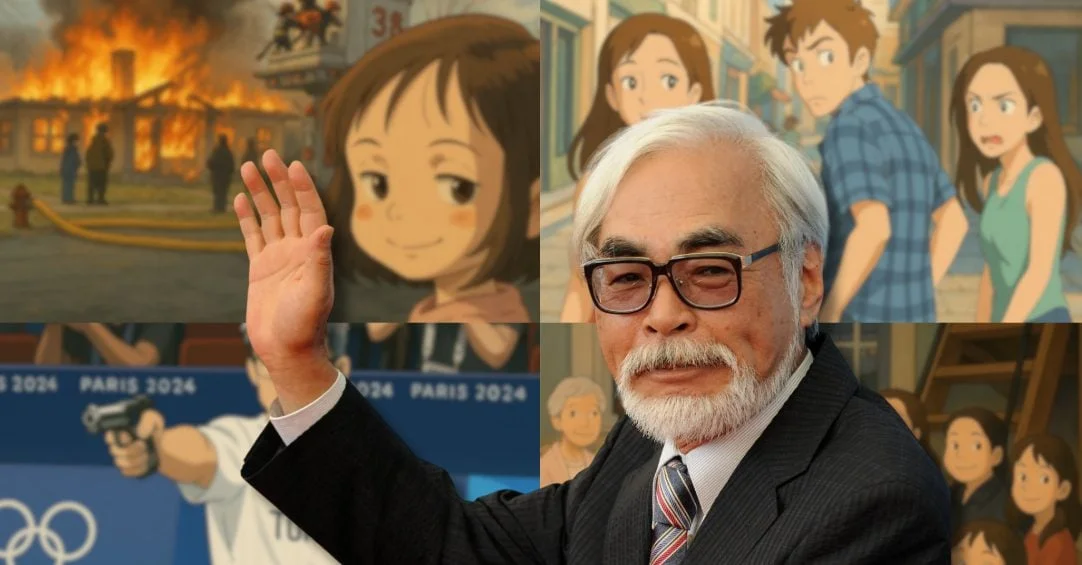OpenAI's most recent update to its AI image generator, powered by GPT-4o, is capturing the public's attention by allowing users to recreate art in the style of popular animation studios, most notably Studio Ghibli. However, the trend of AI-generated Studio Ghibli memes has raised significant concerns about copyright infringement and the ethics of replicating artistic styles without permission.
AI Image Generator Enables Stunning Image Creation
OpenAI's latest technology enables users to create more realistic and visually engaging images. The new features offer enhanced text rendering and the ability to follow more complex and detailed prompts. One notable application of this technology has been the viral trend of recreating popular memes in the style of Studio Ghibli. This has led to a surge in AI-generated content circulating on platforms like X and Instagram.
The “bro explaining” meme and the “distracted boyfriend” meme were among the most popular images to be reworked. Other viral works included scenes from political events and pop culture, all reimagined with a distinctly Ghibli-esque aesthetic.
Studio Ghibli’s Artistic Legacy Under Scrutiny
The viral trend of AI-generated Studio Ghibli images also brings to the forefront long-standing concerns about the intersection of AI and copyright. The legendary animation studio, known for its meticulous hand-drawn style, has faced public criticism of AI-generated art in the past. Hayao Miyazaki, co-founder of Studio Ghibli, famously expressed his disdain for AI-generated content, calling it an “insult to life itself” in a 2016 interview.
OpenAI’s new image generation tool raises questions about intellectual property, as it enables users to produce art in the style of a studio that has not consented to having its work replicated in this manner. Although the company has implemented safeguards to prevent the generation of art that mimics the work of living artists, this has not stopped the flood of Ghibli-style memes.
Legal Implications and OpenAI's Response to the Controversy
This technology has sparked broader conversations within the art community about the ethics of using AI to replicate an artist's style. Many argue that such practices exploit copyrighted material without consent, especially since models like OpenAI's image generator are trained using vast datasets that likely include works by living artists.
OpenAI has responded by stating that its tool will refuse to generate images in the style of individual living artists, such as Hayao Miyazaki. However, the company does allow the replication of broader studio styles, which has led to confusion and continued debates around AI and copyright laws.
AI’s Growing Role in Creative Freedom and Art Generation
Despite the copyright issues, many users have embraced OpenAI’s image generator for its ability to create high-quality images and videos. The trend highlights AI’s growing role in providing creative freedom to users who may not have access to traditional artistic skills or tools. OpenAI’s CEO Sam Altman, joked on social media that after years of working to develop AI for medical and scientific purposes, it was the Studio Ghibli memes that finally caught public attention.
With the surging demand for AI-generated content, OpenAI has temporarily limited the number of images users can generate, citing strain on its computational resources. Altman noted that the increased usage of AI to generate Ghibli-style images has overwhelmed their systems, prompting the introduction of rate limits.
As the technology advances, the intersection of AI, art, and copyright will continue to be a focal point for industry leaders, artists, and tech developers alike. The conversation around AI-generated content will likely evolve as more innovative uses of this technology emerge.
PHOTO: BLAZETRENDS
This article was created with AI assistance.
Read More






 Saturday, 28-02-26
Saturday, 28-02-26







